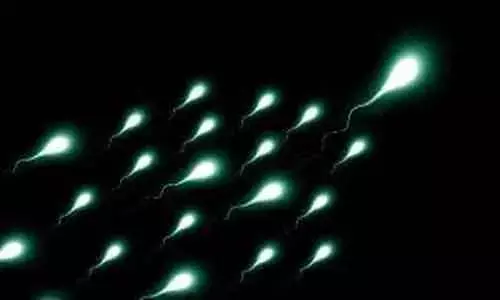- Home
- Medical news & Guidelines
- Anesthesiology
- Cardiology and CTVS
- Critical Care
- Dentistry
- Dermatology
- Diabetes and Endocrinology
- ENT
- Gastroenterology
- Medicine
- Nephrology
- Neurology
- Obstretics-Gynaecology
- Oncology
- Ophthalmology
- Orthopaedics
- Pediatrics-Neonatology
- Psychiatry
- Pulmonology
- Radiology
- Surgery
- Urology
- Laboratory Medicine
- Diet
- Nursing
- Paramedical
- Physiotherapy
- Health news
- Fact Check
- Bone Health Fact Check
- Brain Health Fact Check
- Cancer Related Fact Check
- Child Care Fact Check
- Dental and oral health fact check
- Diabetes and metabolic health fact check
- Diet and Nutrition Fact Check
- Eye and ENT Care Fact Check
- Fitness fact check
- Gut health fact check
- Heart health fact check
- Kidney health fact check
- Medical education fact check
- Men's health fact check
- Respiratory fact check
- Skin and hair care fact check
- Vaccine and Immunization fact check
- Women's health fact check
- AYUSH
- State News
- Andaman and Nicobar Islands
- Andhra Pradesh
- Arunachal Pradesh
- Assam
- Bihar
- Chandigarh
- Chattisgarh
- Dadra and Nagar Haveli
- Daman and Diu
- Delhi
- Goa
- Gujarat
- Haryana
- Himachal Pradesh
- Jammu & Kashmir
- Jharkhand
- Karnataka
- Kerala
- Ladakh
- Lakshadweep
- Madhya Pradesh
- Maharashtra
- Manipur
- Meghalaya
- Mizoram
- Nagaland
- Odisha
- Puducherry
- Punjab
- Rajasthan
- Sikkim
- Tamil Nadu
- Telangana
- Tripura
- Uttar Pradesh
- Uttrakhand
- West Bengal
- Medical Education
- Industry
Antioxidant supplements have no role in male infertility, NIH study suggests

In a study published in the Journal Fertility and Sterility, researchers found that there was no improvement in sperm concentration, mobility, shape and DNA quality with antioxidant supplements after three months compared to the placebo.
Antioxidant supplements are commercially available to help treat male infertility, but research on its effects on semen quality and rates of pregnancy and live birth are limited.
The researchers conducted a Multicenter, double-blind, randomized, placebo-controlled trial to determine whether antioxidants improve male fertility, as measured by semen parameters and DNA fragmentation at 3 months and pregnancy resulting in live birth after up to 6 months of treatment, among couples with male factor infertility. They found that antioxidant supplements do not improve semen quality among men with infertility. The study also found that antioxidant supplements likely do not improve pregnancy and live birth rates. The study appears in Fertility and Sterility.
The new study reports on results from the Males, Antioxidants, and Infertility Trial (MOXI), a double-blind, randomized, placebo-controlled clinical study conducted at nine sites across the United States. The study enrolled 171 couples where the male partner had at least one abnormal reading on an analysis evaluating sperm concentration, mobility, shape and DNA quality; the female partners had normal fertility test results. Men received a placebo or an antioxidant supplement containing vitamins C, E and D, selenium, l-carnitine, zinc, folic acid and lycopene for at least three months and up to six months. MOXI was supported by NICHD's Reproductive Medicine Network.
Read Also: Male fertility after chemotherapy: New questions raised
The study team found no statistically significant differences in sperm concentration, mobility, shape and DNA quality between the placebo and antioxidant groups after three months. Furthermore, live birth rates did not seem to differ at six months between the antioxidant (15%) and placebo (24%) groups. However, the authors note that per the study design, recruitment was stopped before it reached the desired number of participants because no benefits were seen in the antioxidant group. Therefore, the authors only had enough participants to evaluate statistical differences in semen quality but not in pregnancy and live birth rates.
According to the authors, MOXI is the largest randomized, placebo-controlled trial to examine the effects of antioxidants, without additional assisted reproductive technology, on male infertility.
WHO: Study author Esther Eisenberg, M.D., M.P.H., of NICHD's Fertility and Infertility Branch is available for interviews.
REFERENCE: Steiner AZ et al. The effect of antioxidants on male factor infertility: the Males, Antioxidants, and Infertility (MOXI) randomized clinical trial. Fertility and Sterility DOI: 10.1016/j.fertnstert.2019.11.008 (2020)
For further reference please log on to:http://dx.doi.org/10.1016/j.fertnstert.2019.11.008
Dr Kamal Kant Kohli-MBBS, DTCD- a chest specialist with more than 30 years of practice and a flair for writing clinical articles, Dr Kamal Kant Kohli joined Medical Dialogues as a Chief Editor of Medical News. Besides writing articles, as an editor, he proofreads and verifies all the medical content published on Medical Dialogues including those coming from journals, studies,medical conferences,guidelines etc. Email: drkohli@medicaldialogues.in. Contact no. 011-43720751


